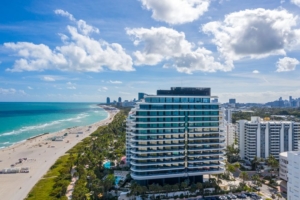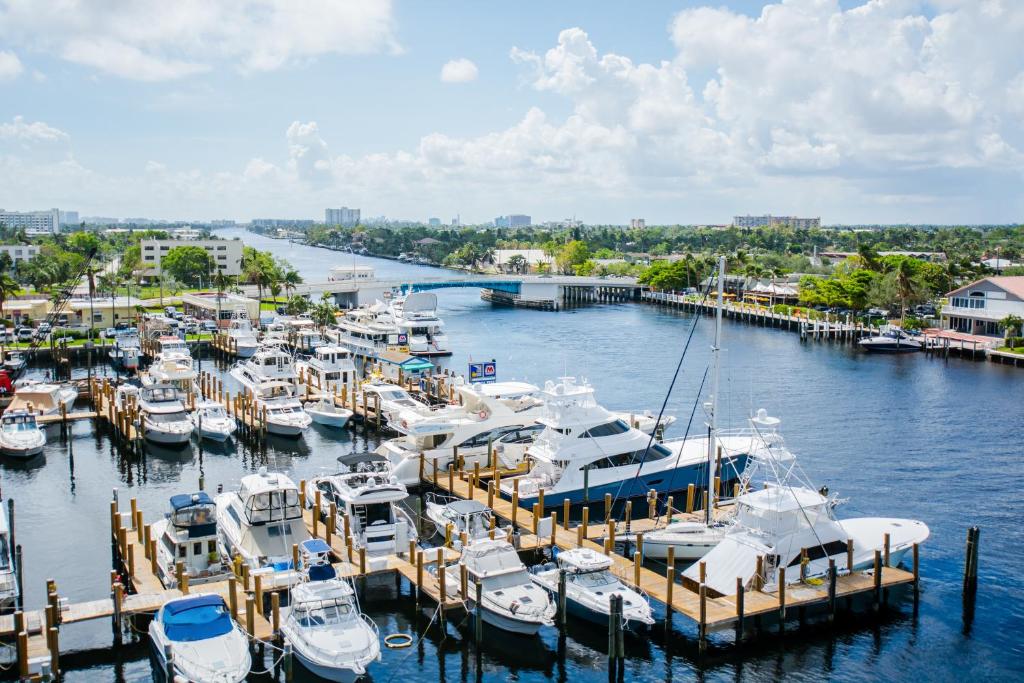Miami-Dade Restaurant Tax Enforcement Crisis: 800+ Establishments Face Retroactive Penalties
A dramatic tax enforcement crisis has engulfed Miami-Dade County's restaurant industry, with over 800 dining establishments suddenly confronted by demands for retroactive tax payments they never knew existed. The county's aggressive collection campaign has sent shockwaves through the hospitality sector, threatening the survival of numerous local businesses already struggling with post-pandemic challenges.
The Forgotten Tax That's Destroying Restaurant Dreams
The source of this crisis lies in an obscure 1% sales tax that has existed since 1992, designed to fund homeless and domestic violence services throughout Miami-Dade County. This additional levy applies specifically to restaurants serving alcohol with annual gross revenues exceeding $400,000, yet hundreds of business owners operated for years without any knowledge of its existence.
Denise Yaniz, owner of Kendall's Sushi2Mee restaurant, exemplifies the industry's shock. After operating her establishment for nearly a decade, she discovered the tax's existence only six months ago. "I never knew about this tax," Yaniz revealed, expressing disbelief that a decades-old requirement could suddenly surface with such devastating financial consequences.
The enforcement mechanism reveals a fundamental flaw in the system: when restaurants obtain alcohol licenses, county tax offices receive no automatic notification. This communication gap created a perfect storm where businesses operated legally according to their understanding while unknowingly violating county tax requirements.
Unprecedented Enforcement Sweep Targets Miami's Dining Scene
Miami-Dade County's Department of Regulatory and Economic Resources (RER) has mounted an aggressive collection campaign since taking over enforcement from the Tax Collector's Office in October 2024. The scale of this operation is staggering: 813 restaurants have received enforcement letters since January 1, 2025, with many facing demands for three years of back taxes plus penalties.
The retroactive nature of these demands has created panic throughout the industry. Restaurant owners describe receiving 30-day ultimatums to resolve tax liabilities that can reach five or six figures. One documented case involved a liability reduction from $134,570 to $20,413 – still a devastating blow for most restaurant operators.
Felix Bendersky, who leads F + B Hospitality, a Miami-based restaurant brokerage, has witnessed the crisis firsthand. "Nobody has known about it, and very few people have paid it," he explained, noting that dozens of his clients have received enforcement letters. The timing couldn't be worse, as the restaurant industry already faces challenges from seasonal fluctuations, economic pressures, and increased regulatory scrutiny.
Industry-Wide Impact and Economic Consequences
The enforcement crisis comes at a time when tax compliance in the hospitality sector requires constant vigilance, with states increasingly turning to aggressive tax policy enforcement. The restaurant industry's notoriously thin profit margins make unexpected tax bills particularly devastating, especially when applied retroactively.
The ripple effects extend beyond individual establishments. Property owners face potential liens against buildings leased to non-compliant restaurants, creating additional pressure on landlords and potentially destabilizing commercial real estate relationships. Bendersky warns that many restaurant owners are contemplating closure rather than facing insurmountable tax debts.
The county's enforcement strategy has also revealed concerning procedural issues. Many business owners report that their accountants and tax professionals were equally unaware of the requirement, suggesting a systemic failure in information dissemination. This knowledge gap has existed for over three decades, raising questions about the fairness of retroactive enforcement.
County Response and Mitigation Efforts
Miami-Dade County spokesperson Monique Spence maintains that RER is working with restaurant owners "to ensure compliance in a fair and supportive way." The county has implemented several measures to address the crisis, including waiving portions of back taxes and offering payment plans for businesses needing extended time to resolve their obligations.
However, the county's inability to provide total amounts owed raises concerns about the scope of the problem. "We do not know what monies are owed, nor can we accurately estimate how much could be owed, until a business creates an account with us and our staff performs an audit," Spence explained, suggesting the full extent of the crisis remains unknown.
The county's approach of handling each case individually, while potentially more equitable, has created uncertainty for business owners who cannot predict their potential liability. This uncertainty makes financial planning impossible for establishments already operating under economic pressure.
Navigation Strategies for Affected Restaurants
Restaurant owners facing enforcement letters should immediately seek professional tax advice and gather financial records for the past three years. The county's willingness to negotiate reduced settlements and payment plans suggests that proactive engagement may yield better outcomes than attempting to ignore the problem.
Business owners should also review their alcohol licensing documentation and ensure all future tax obligations are properly understood and implemented. The crisis has highlighted the importance of comprehensive compliance reviews that extend beyond standard federal and state requirements to include local tax obligations.
For restaurants not yet contacted by RER, preemptive compliance may be advisable. Implementing the 1% tax voluntarily and reaching out to county officials could prevent more severe retroactive penalties and demonstrate good faith efforts at compliance.
Key Insights About Miami-Dade's Restaurant Tax Crisis
What exactly is the 1% restaurant tax?
The tax is a local sales tax that applies to Miami-Dade County restaurants serving alcohol with annual gross revenues exceeding $400,000. Revenue funds homeless and domestic violence services, and the tax has existed since 1992.
Why are restaurants just learning about this now?
A communication gap between state alcohol licensing agencies and county tax offices meant restaurants never received notification of their tax obligations. The county only began aggressive enforcement after RER took over collection duties in October 2024.
How many restaurants are affected?
Over 800 restaurants have received enforcement letters since January 2025, with potentially hundreds more facing similar demands as the county continues its compliance campaign.
What are the penalties for non-compliance?
Restaurants face up to three years of back taxes plus potential penalties, with some cases reaching six-figure amounts. However, the county has shown willingness to negotiate reduced settlements and payment plans.
Can restaurants fight these demands?
While the tax is legally valid, restaurants can work with county officials to negotiate reduced settlements and payment plans. Professional tax consultation is recommended for all affected establishments.
What should restaurant owners do if they receive an enforcement letter?
Immediately gather financial records, seek professional tax advice, and engage proactively with county officials. The county has demonstrated willingness to work with businesses to find reasonable solutions.
The Miami-Dade restaurant tax crisis represents a cautionary tale about the importance of comprehensive compliance awareness and the devastating impact of retroactive enforcement. As the county continues its collection efforts, the survival of numerous local establishments hangs in the balance, potentially reshaping Miami's dining landscape for years to come.












